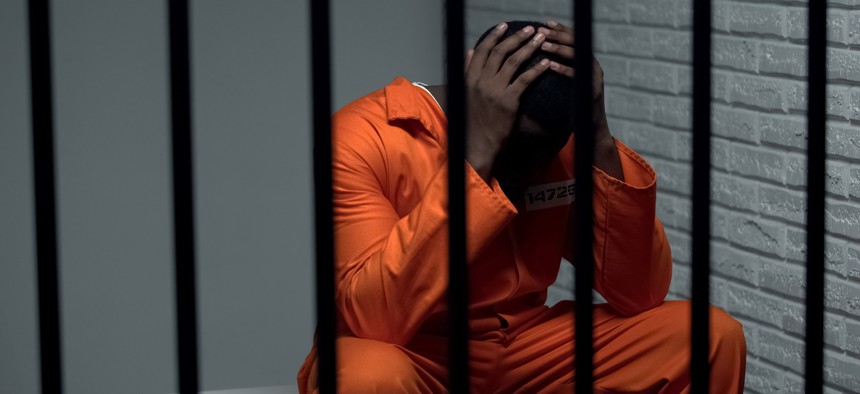Canceled Fines and Fees, $0 Cash Bail. Will Pandemic-era Criminal Justice Changes Stick?

istockphoto.com/mortortion
A group that advocates for incarcerated people provides states and localities recommendations for keeping citizens who committed minor offenses out of jails and prisons.
As the coronavirus pandemic swept the nation last spring, state and local government policymakers enacted measures to try to keep incarcerated individuals healthy: They released some people from jails and prisons, reduced incarceration rates and made facilities safer.
The Vera Institute for Justice, an advocacy group, says steps taken during 2020 can continue to downsize jail and prison populations while keeping communities safe. “The pandemic showed what’s possible,” Vera writes. “Public officials found ways to decarcerate over-crowded jails and prisons; decriminalize minor offenses; and reduce and even eliminate fines, fees, and cash bail.”
The organization says there are changes policymakers implemented during the pandemic that should be carried forward:
Police can make fewer traffic stops. In 2020, police in some jurisdictions pulled over significantly fewer people, following guidance from groups like the International Association of Chiefs of Police to limit traffic enforcement for “non-critical concerns.” Last year, traffic stops by Texas police fell 35% and tickets issued in Connecticut were down 34%.
Jurisdictions can reduce or eliminate court fines and fees. In March 2020, Maine vacated all its 12,420 outstanding warrants for unpaid fines and fees. Meanwhile, Dane County, Wisconsin, eliminated fines and fees for currently and formerly incarcerated people totaling $150,000 as well as a number of other judiciary charges totalling more than $1 million.
Prosecutors can decline to charge people for low-level offenses. In 2020, some district attorneys didn’t prosecute minor cases to keep people out of courtrooms and jails. For example, Baltimore stopped prosecuting drug possession, prostitution, trespassing and other low-level offenses, a move that the state’s attorney’s office made permanent in March.
Cities and states can limit use of cash bail and pretrial detention. Most of the 500,000 people held in jail pretrial are there because they can’t afford bail. A number of cities and states changed bail and pretrial detention policies during the pandemic to reduce the number of people awaiting trial behind bars. For instance, jail populations in California dropped after the state issued an emergency rule that reduced bail to $0 for people accused of low-level crimes. The state’s judicial council rescinded the emergency measure in June 2020, but at least 31 California counties kept the measure in place past that date.
For more information about Vera’s recommendations click here. To see the group’s 2021 report about people in jails and prisons click here.
Jean Dimeo is managing editor of Route Fifty.
NEXT STORY: Why People Resist Disaster Preparedness Spending





